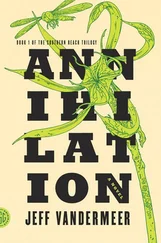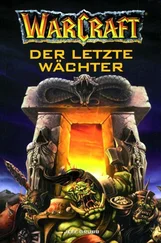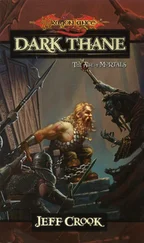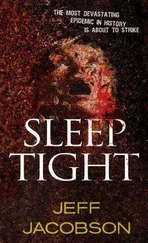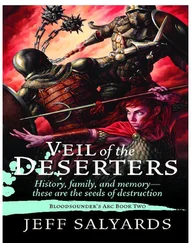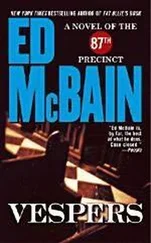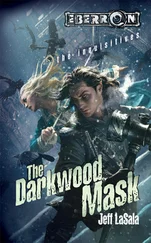Jeff Rovin - Vespers
Здесь есть возможность читать онлайн «Jeff Rovin - Vespers» весь текст электронной книги совершенно бесплатно (целиком полную версию без сокращений). В некоторых случаях можно слушать аудио, скачать через торрент в формате fb2 и присутствует краткое содержание. Жанр: Триллер, на английском языке. Описание произведения, (предисловие) а так же отзывы посетителей доступны на портале библиотеки ЛибКат.
- Название:Vespers
- Автор:
- Жанр:
- Год:неизвестен
- ISBN:нет данных
- Рейтинг книги:5 / 5. Голосов: 1
-
Избранное:Добавить в избранное
- Отзывы:
-
Ваша оценка:
- 100
- 1
- 2
- 3
- 4
- 5
Vespers: краткое содержание, описание и аннотация
Предлагаем к чтению аннотацию, описание, краткое содержание или предисловие (зависит от того, что написал сам автор книги «Vespers»). Если вы не нашли необходимую информацию о книге — напишите в комментариях, мы постараемся отыскать её.
Vicious bat attacks moving southward along the Hudson River prompt Nancy Joyce, a bat scientist who works for the Bronx Zoo, to investigate. When the attacks move into the New York subway system, Manhattan police detective Robert Gentry becomes involved. Joyce and Gentry team up to determine what is causing this unusual behavior. What they discover will keep listeners pinned to their seats and clawing for more.
Vespers — читать онлайн бесплатно полную книгу (весь текст) целиком
Ниже представлен текст книги, разбитый по страницам. Система сохранения места последней прочитанной страницы, позволяет с удобством читать онлайн бесплатно книгу «Vespers», без необходимости каждый раз заново искать на чём Вы остановились. Поставьте закладку, и сможете в любой момент перейти на страницу, на которой закончили чтение.
Интервал:
Закладка:
The morning rush hour over, the crowd on the downtown platform built slowly. It consisted of a handful of tourists who were double-checking maps in guidebooks and a pair of slouching students wearing baggy clothes and blank expressions. A guitarist performed near the turnstiles, his instrument case open at his feet for donations. A businessman with a Walkman and a crisply foldedWall StreetJournal stood alone at the end of the platform.
Save for the guitarist’s unplugged sounds of Oingo Boingo, it was quiet on the platform. Then the first of the little brown bats flew in. It scratched a jagged course high over the tracks and snared the attention of one of the students.
“Hey, cool,” he droned. His sullen eyes opened slightly as he raised a pale finger and pointed.
The girl had her back to the tracks. She turned and looked as the bat zigzagged toward them. It landed on the boy’s black wool cap, and he suddenly came to life. He backed away, swinging his gangly arms at the creature as the talons pierced his scalp.
“Fuck, man!”
The girl stepped forward and swatted at the bat. The boy turned circles blindly as four more bats suddenly raced from the tunnel to the platform. Two of them descended on the girl from above and snatched at her long black-and-green hair while the other two dug at the back of a boy’s neck. She screamed in pain as the bats pulled her head back.
The tourists finally looked over, and the guitarist stopped playing. Shouting for help, they all ran toward the kids. The businessman standing one hundred feet away saw and heard nothing. His eyes were on his newspaper and his ears were full of opera.
Sitting in her bulletproof booth and counting out five-dollar bills, subway clerk Meg Ricci heard the cries of the people on the platform. She looked up over her reading glasses and saw the tourists and students dancing and flailing. She saw the musician swinging his guitar around him. Then she saw the flapping wings and the dark little bats attacking their faces and hands. She snatched up the phone and called for police assistance.
As Meg told the dispatcher what was going on, something else happened. A well-dressed man at the end of the platform had removed his earphones and looked over. As he turned toward the others, a large shadow enveloped him. It came over the man from above, like poured paint, and then spilled quickly to the left. When the inky blackness was gone, so was the man.
Meg reported exactly what she saw before she realized how insane it must sound. The dispatcher matter-of-factly asked her to repeat it. Meg did. That was what had happened.
A few seconds later the bats suddenly stopped attacking the people on the platform. They fluttered around for a moment, circling just under the ceiling like leaves in an eddy. Then they darted back over the tracks and took off down the tunnel, following the inky shape.
While the dispatcher put out a call, Meg broke the rules. Pulling a first aid kit from under the counter, she left her booth and hopped the turnstile. She turned back long enough to tell new arrivals not to come in, then went to help the riders who had fallen.
Two patrolmen from the sixth precinct arrived moments later. While one of them called for an ambulance from St. Vincent’s and kept other people from entering the station, the second officer went to help Meg.
She was extremely calm as she applied disinfectant and bandages to the students’ scratches and told the officer about the bats and about the well-dressed man who must have fallen from the platform. What she saw, she decided, had been his jacket flying up. Or maybe it was the reflection of her own dark hair on the glass of the booth.
The officer went to the end of the platform to have a look. He hopped down onto the tracks. When he came back he was holding headphones from a Walkman. The foam ends were wet with blood.
He called for backup from the transit police and recommended that the station be closed.
Still calm, Meg went back to her booth and called her supervisor for instructions. He told her to lock the money drawer and the booth and to do whatever the police told her.
Transit police arrived. They took Meg’s name, address, and phone number, and told her she could go.
She took the next bus back to Queens.
Fifteen
The American Museum of Natural History was built in 1874. Located along Central Park West between Seventy-seventh and Eighty-first streets, it is best known today for its unparalleled collection of prehistoric fossils and dinosaur skeletons. However, it was originally designed to be a showcase for contemporary nature and archaeological displays.The dioramas of modern-day animal life, from birds to bison to fish, remain among its most popular attractions.
But the galleries and spacious display halls are not the museum’s only service. Research, exploration, and education are also important functions, and the fifth floor of the museum-closed to the public-has long been a haven for scientists and scholars. There, in hundred-year-old cabinets and drawers as well as in modern cryogenic chambers, the museum stores countless animal, vegetal, and fossil specimens for study.
Given what had happened in the tunnel, Gentry was in as good a mood as he could be. He was guardedly optimistic for a reconciliation. He liked Nancy Joyce, he admired her courage and determination, and he felt bad about what he’d done. He didn’t feel repentant, for he’d do it again. Just bad. And all he wanted was the chance, at some point, to tell her everything-except the fact that he wouldn’t have done anything differently.
Gentry got off the elevator at the fifth floor. A skinny young man was passing. The kid held a small plastic tray full of tiny bones, stringy sinew, and what looked like blood. The detective asked him for directions to Professor Lowery’s laboratory. The young man pointed ahead and told him to hang a left and then a right.
Gentry thanked him then looked at the dish. “Mind if I ask what that is?” he asked.
“Lunch,” the young man replied. “Chicken cacciatore.”
The man continued down the corridor. Gentry followed him. There were framed portraits and photographs of various expeditions, going back to the Gobi expedition in the 1920s. The men and women portrayed reeked of scholarship and trailblazing. The detective made a point of not looking at them. He didn’t want to start feeling inadequate between here and the laboratory.
Gentry had never been at ease in academic settings. He spent one semester at City College before bagging it for the NYPD. He liked finding things out for himself, not being lectured to. That was one of the many things he loved about his typesetter father. The man never talked at him. He talked to him and with him, as though it were always man-to-man. Even when it was man-to-seven-year-old.
Part of Gentry’s discomfort also probably had to do with his mother having worked as a secretary for an intellectual snob of a college dean, Dr. Horst Acker. “Boss Tweed,” he and his dad used to call him. His mother ended up leaving Gentry’s father for him. The seven-year-old Gentry hated the red-cheeked, pipe-smoking creep with all the energy in his body, and after three months he ran away from his mother to live with his dad. His mother let him go, which was fine: Gentry wasn’t crazy about her, either.
Before Gentry reached the laboratory, his beeper sounded again. He checked the number; this time it was Chris Henry. Give that dog a bone and there was no one who could chew it up faster. He kept walking.
At Lowery’s laboratory, Gentry rapped on the frosted glass. His heart was thumping hard, harder than when he went into the hole in the service tunnel. He heard a Swiss-sounding voice and saw Joyce’s shadow move toward the door. She hesitated a moment, then turned and opened it.
Читать дальшеИнтервал:
Закладка:
Похожие книги на «Vespers»
Представляем Вашему вниманию похожие книги на «Vespers» списком для выбора. Мы отобрали схожую по названию и смыслу литературу в надежде предоставить читателям больше вариантов отыскать новые, интересные, ещё непрочитанные произведения.
Обсуждение, отзывы о книге «Vespers» и просто собственные мнения читателей. Оставьте ваши комментарии, напишите, что Вы думаете о произведении, его смысле или главных героях. Укажите что конкретно понравилось, а что нет, и почему Вы так считаете.

